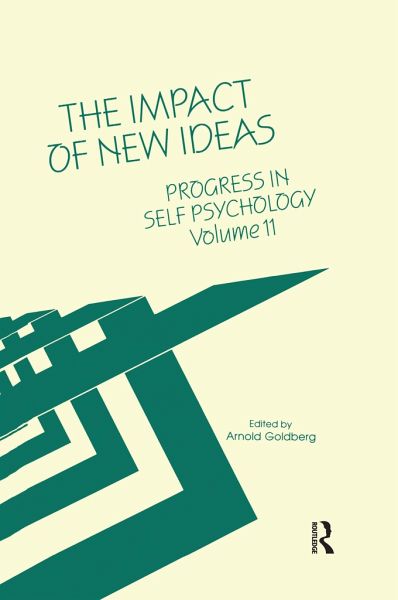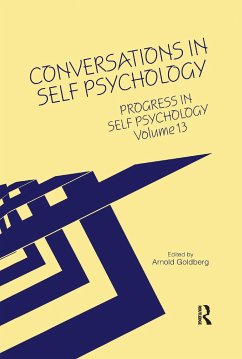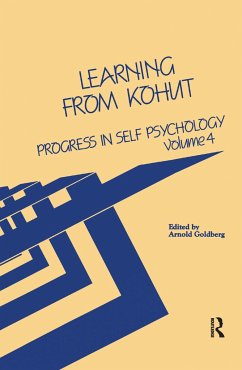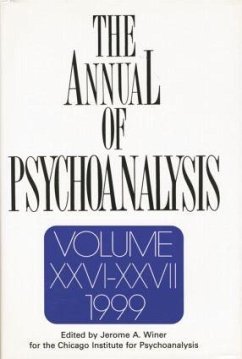
Progress in Self Psychology, V. 11
The Impact of New Ideas
Herausgeber: Goldberg, Arnold I.
Versandkostenfrei!
Versandfertig in 1-2 Wochen
32,99 €
inkl. MwSt.

PAYBACK Punkte
16 °P sammeln!
Volume 11 begins with a timely assessment of self psychology and intersubjectivity theory, with original contributions by D. Carveth, J. Trop, P. Ornstein, and C. Powell. Clinical studies span the transferences (F. Lachmann & S. Kiersky, E. Lewinberg














